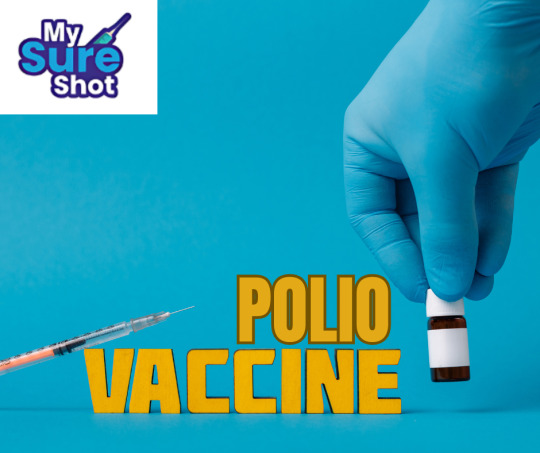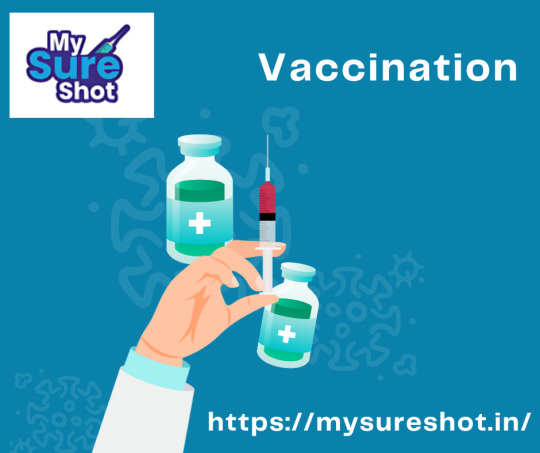Don't wanna be here? Send us removal request.
Text
Side Effects of Vaccines: What’s Normal and What’s Not

Vaccines are one of the most effective ways to prevent infectious diseases and protect public health. However, like any medical intervention, they can cause side effects. While most side effects are mild and temporary, some can be more serious. Understanding what to expect can help ease concerns and ensure timely medical attention if needed.
Common and Normal Side Effects
Most vaccine side effects are mild and short-lived. These include:
Pain, Redness, or Swelling at the Injection Site
This is the most common side effect and typically resolves within a few days.
Mild Fever
A low-grade fever is a sign that the body is responding to the vaccine and building immunity.
Fatigue and Muscle Aches
Some people experience tiredness, headache, or mild body aches, similar to flu-like symptoms.
Chills or Mild Swelling in Nearby Lymph Nodes
This can happen as the immune system reacts to the vaccine.
Mild Nausea
Some individuals may feel queasy or experience an upset stomach for a short time.
These side effects usually disappear on their own within a few days and can be managed with rest, hydration, and over-the-counter pain relievers.
Less Common but Generally Harmless Side Effects
Some vaccines may cause slightly less common side effects, such as:
Joint pain (seen with some COVID-19 vaccines)
Temporary dizziness or lightheadedness
Rash or mild allergic reactions, such as itching or hives
While these effects can be uncomfortable, they are usually not a cause for concern.
Rare but Serious Side Effects
Serious side effects are extremely rare but require immediate medical attention. These include:
Severe Allergic Reactions (Anaphylaxis)
Symptoms: Difficulty breathing, swelling of the face or throat, rapid heartbeat, or dizziness
Occurs within minutes to hours of vaccination and requires urgent care
Severe or Persistent Headache, Blurred Vision, or Confusion
Could indicate a rare reaction, such as vaccine-induced blood clotting (e.g., in some COVID-19 vaccines)
Chest Pain, Irregular Heartbeat, or Shortness of Breath
May be signs of myocarditis or pericarditis (inflammation of the heart), particularly in younger males after mRNA vaccines
Guillain-Barré Syndrome (GBS)
A very rare condition where the immune system attacks the nerves, linked to some vaccines like flu or COVID-19 vaccines
If you experience any of these severe reactions, seek medical help immediately.
When to Contact a Doctor
While most vaccine side effects are mild, consult a healthcare provider if you experience:
Fever above 103°F (39.4°C) or lasting more than 48 hours
Swelling or pain at the injection site that worsens after 3 days
Persistent headaches, blurred vision, or confusion
Severe or prolonged fatigue and weakness
Final Thoughts
Vaccines are overwhelmingly safe and play a crucial role in preventing serious illnesses. While mild side effects are common, severe reactions are rare. Understanding what’s normal and what’s not can help you make informed decisions and seek help when necessary. Always consult your doctor if you have concerns about vaccination.
0 notes
Text
Twin Pregnancy: What Makes It Different from a Single Pregnancy?

Finding out you're expecting twins can be both exciting and overwhelming! Twin pregnancies are special and come with unique experiences compared to single (singleton) pregnancies. From increased weight gain to a higher risk of complications, carrying twins requires extra care. Let’s explore what makes twin pregnancies different and how to navigate them smoothly.
1. How Do Twin Pregnancies Happen?
Twin pregnancies occur in two ways: 🔹 Identical Twins (Monozygotic) – One fertilized egg splits into two, creating genetically identical babies. 🔹 Fraternal Twins (Dizygotic) – Two eggs are fertilized by two different sperm, resulting in siblings who may not look alike.
The type of twins you have affects pregnancy risks, placenta sharing, and delivery options.
2. More Intense Pregnancy Symptoms
Twin moms often experience stronger pregnancy symptoms due to higher hormone levels: Severe morning sickness (due to increased hCG hormone levels) Faster weight gain (more baby, more placenta, more amniotic fluid!) More fatigue (your body works harder to nourish two babies) Increased back pain and discomfort (extra weight puts pressure on your spine)
3. Higher Nutritional Needs
Eating for three? Almost! Twin pregnancies require more: Calories – Around 600 extra calories per day (compared to 300 for singleton pregnancies). Protein, iron, folic acid, and calcium – Essential for fetal growth and preventing complications. Hydration – Drinking plenty of water reduces the risk of preterm labor and dehydration.
A well-balanced diet is key to keeping both babies healthy.
4. Increased Risk of Pregnancy Complications
While most twin pregnancies are healthy, they come with a higher risk of complications: 🔸 Preterm Birth – More than half of twins are born before 37 weeks. 🔸 Gestational Diabetes – The risk increases due to hormone fluctuations. 🔸 High Blood Pressure & Preeclampsia – Carrying twins doubles the chances. 🔸 Low Birth Weight – Twins are often smaller than single babies due to limited space in the womb.
Regular prenatal check-ups are crucial to monitor both babies’ development and prevent complications.
5. More Frequent Doctor Visits & Ultrasounds
Twin pregnancies require closer monitoring than singleton pregnancies: More frequent prenatal visits – Doctors track growth, fluid levels, and potential complications. Extra ultrasounds – Usually done every 4 weeks (or more often if needed). More blood tests – To check for anemia and other conditions.
Early and consistent medical care ensures a safe pregnancy for both mom and babies.
6. Delivery: C-Section or Vaginal Birth?
Delivery options depend on: Baby position – If both twins are head-down, vaginal delivery is possible. Complications – If one or both babies are in distress, a C-section may be necessary. Doctor’s recommendation – High-risk twin pregnancies often lead to scheduled C-sections.
On average, twin pregnancies end earlier than single pregnancies, often between 36-38 weeks.
7. Postpartum Recovery is Different
After delivering twins, recovery can take longer than after a singleton pregnancy: Increased postpartum fatigue – Two babies mean double the nighttime feedings! Higher breastfeeding demands – Moms may need extra support for tandem nursing. Greater emotional adjustment – Postpartum depression risk may be slightly higher due to exhaustion.
A strong support system, good nutrition, and self-care help new twin moms recover faster.
Conclusion: Double the Love, Double the Care!
Twin pregnancies bring unique joys and challenges, from intense symptoms to a higher need for medical attention. With the right care, a balanced diet, and regular check-ups, twin moms can have a healthy and smooth pregnancy. Whether it’s double kicks, double cravings, or double cuddles after birth—twin pregnancies truly are a special experience!
Are you expecting twins? Share your journey in the comments!
0 notes
Text
Newborn Baby Vaccines: Everything Parents Need to Know

Vaccination is one of the most important steps in ensuring a newborn baby’s health. It helps protect infants from life-threatening diseases and strengthens their immune system for a healthier future. In this blog, we’ll cover everything parents need to know about newborn vaccines, including their importance, benefits, potential side effects, and the recommended immunization schedule.
Why Are Newborn Vaccines Important?
Newborn babies are vulnerable to infections as their immune systems are still developing. Vaccines help their bodies build immunity against serious diseases such as:
Hepatitis B
Tuberculosis (BCG)
Polio
Diphtheria, Tetanus, and Pertussis (DTP)
Haemophilus Influenzae Type B (Hib)
Pneumococcal infections
Rotavirus
By vaccinating your newborn, you are providing them with the best defense against these illnesses, reducing the risk of complications and hospitalizations.
Benefits of Newborn Vaccination
Prevents Deadly Diseases – Vaccines protect against severe infections that could otherwise lead to complications or death.
Strengthens Immunity – Helps babies develop antibodies to fight infections.
Reduces Healthcare Costs – Preventing diseases through vaccination saves money on treatments and hospitalizations.
Protects the Community – High vaccination rates contribute to herd immunity, reducing disease spread.
Ensures Long-Term Health – Provides protection not only during infancy but throughout life.
Newborn Vaccine Schedule
At Birth:
Hepatitis B – Prevents liver infections caused by the hepatitis B virus.
BCG (Bacillus Calmette-Guérin) – Protects against tuberculosis.
Oral Polio Vaccine (OPV-0) – Provides early protection against polio.
6-8 Weeks:
DTP (Diphtheria, Tetanus, Pertussis) – Protects against three serious bacterial infections.
Hib (Haemophilus Influenzae Type B) – Prevents bacterial infections like pneumonia and meningitis.
Pneumococcal Vaccine (PCV-1) – Protects against pneumococcal diseases.
Rotavirus Vaccine – Helps prevent severe diarrhea.
IPV (Inactivated Polio Vaccine) – Provides stronger immunity against polio.
10-14 Weeks:
Booster doses of DTP, Hib, PCV, Rotavirus, and IPV vaccines.
6 Months to 1 Year:
Hepatitis B (Booster)
Measles, Mumps, and Rubella (MMR) – Protects against three viral infections.
Influenza Vaccine – Recommended for seasonal flu protection.
Possible Side Effects of Vaccines
Most newborn vaccines are safe and cause only mild side effects, such as:
Fever – A mild fever that usually subsides within 24-48 hours.
Redness or Swelling at Injection Site – Common and temporary.
Irritability or Fussiness – Some babies may be restless post-vaccination.
Loss of Appetite – Temporary decrease in feeding.
Rare Side Effects
Severe allergic reactions are extremely rare but may include difficulty breathing or high fever. If any unusual symptoms occur, consult your doctor immediately.
How to Make Vaccination Easier for Your Baby
Ensure Proper Hydration – Breastfeeding before and after vaccination can help comfort the baby.
Soothe and Comfort – Holding and cuddling your baby reduces anxiety and pain.
Follow Pediatrician’s Advice – Stick to the recommended immunization schedule.
Use a Cool Compress – Applying a cold cloth to the injection site can help relieve swelling.
Conclusion
Newborn vaccines are a sure shot way to safeguard your baby’s health, preventing severe diseases and ensuring long-term well-being. While minor side effects may occur, the benefits of immunization far outweigh the risks. Always consult your pediatrician, stay informed, and follow the vaccination schedule to give your baby the healthiest start in life.
#immunization#my sure shot#vaccination schedules#vaccine#parenting tips#vaccination#children#kids#parenting
1 note
·
View note
Text
What is a Vaccine and How Does It Work?

Vaccines have played a crucial role in protecting humanity from deadly diseases for centuries. From smallpox to COVID-19, vaccines have saved millions of lives by preventing the spread of infectious diseases. But what exactly is a vaccine, and how does it work? Let’s dive into the science behind vaccination.
What is a Vaccine?
A vaccine is a medical preparation designed to stimulate the body's immune system to fight specific diseases. It contains weakened, inactivated, or genetically modified parts of a pathogen (such as a virus or bacteria). When introduced into the body, the immune system recognizes these components as threats and learns to fight them, providing long-term immunity without causing illness.
How Does a Vaccine Work?
Vaccines work by training the immune system to recognize and attack harmful pathogens. The process involves three key steps:
Introduction of Antigens: The vaccine introduces harmless forms of disease-causing microbes (antigens) into the body.
Immune Response Activation: The immune system detects these antigens and produces antibodies—proteins that help fight infections.
Memory Formation: The immune system remembers the pathogen, so if the real disease ever enters the body, it can fight it off quickly and effectively.
Types of Vaccines
There are several types of vaccines, each developed using different scientific techniques:
Live Attenuated Vaccines: Contain weakened forms of the virus (e.g., measles, mumps, rubella).
Inactivated Vaccines: Use killed pathogens (e.g., polio, hepatitis A).
mRNA Vaccines: Teach cells to produce viral proteins to trigger immunity (e.g., COVID-19 vaccines like Pfizer and Moderna).
Subunit, Recombinant, or Conjugate Vaccines: Contain specific pieces of the pathogen (e.g., HPV, hepatitis B).
Why Are Vaccines Important?
Vaccination is one of the most effective ways to prevent infectious diseases. Benefits include:
✅ Protection from Deadly Diseases – Prevents severe infections like polio, tetanus, and COVID-19. ✅ Herd Immunity – Helps protect people who cannot be vaccinated, such as newborns and those with weak immune systems. ✅ Prevention of Outbreaks – Stops the spread of diseases before they become epidemics.
Vaccination Awareness: my sure shot
Spreading awareness about vaccines is crucial to ensuring public health and safety. Platforms like my sure shot help educate people on the importance of immunization, debunk myths, and encourage timely vaccinations. By staying informed and getting vaccinated, we can protect ourselves and future generations from preventable diseases.
Conclusion
Vaccines are truly a "sure shot" way to stay protected against life-threatening illnesses. By understanding how they work and ensuring widespread immunization, we can build a healthier and safer world for everyone.
1 note
·
View note
Text
Shielding Your Little One: The Benefits of Influenza Vaccination
As a parent, your child’s health is always a top priority. Every season brings new challenges, and influenza (flu) is one of the most common yet preventable illnesses that can affect children. The good news? A simple flu shot can help protect your little one from serious health complications.
Why Influenza Vaccination is Essential for Children
Influenza is more than just a bad cold—it’s a highly contagious respiratory illness that can lead to severe complications, especially in young children. Their immune systems are still developing, making them more vulnerable to the flu virus. The influenza vaccine serves as a protective shield, reducing the risk of infection and complications.
Key Benefits of Influenza Vaccination for Kids
Reduces the Risk of Severe Illness The flu vaccine helps prevent serious symptoms and complications, such as pneumonia, bronchitis, and ear infections. Children under five, especially infants, are at a higher risk of hospitalization due to flu-related complications.
Prevents the Spread of Flu Kids are constantly in close contact with others—at school, daycare, and playgrounds. The flu vaccine not only protects your child but also helps stop the virus from spreading to family members, including grandparents and younger siblings.
Lowers the Chance of Hospitalization According to health experts, flu vaccination significantly reduces hospital visits for flu-related illnesses. It provides crucial protection, especially for children with asthma, diabetes, or other underlying health conditions.
Strengthens Immunity Annual flu shots help build your child’s immune system by preparing their body to fight off multiple flu strains. Since flu viruses change every year, getting vaccinated annually ensures continued protection.
Minimizes School Absences & Parental Stress Flu infections can lead to missed school days and disruptions in daily life. Vaccinating your child helps ensure they stay healthy, active, and engaged in their learning. It also reduces the stress and financial burden of dealing with frequent doctor visits and medications.
When and How to Get Your Child Vaccinated?
Flu vaccines are usually available before the start of flu season, which typically peaks between December and February. Pediatricians recommend getting the flu shot in early fall for the best protection. The vaccine is available in two forms:
Flu Shot – An injection recommended for all children six months and older.
Nasal Spray – A painless alternative for kids who are two years and older (if they meet health eligibility criteria).

Is the Flu Vaccine Safe?
Yes! The flu vaccine has been extensively tested and monitored for safety. While minor side effects like mild fever or soreness at the injection site may occur, these are temporary and far less severe than the flu itself. The benefits of vaccination far outweigh the risks.
💡 MySureshot: Ensure Maximum Protection
Along with the flu vaccine, encourage good hygiene habits to keep flu at bay. Teach your child to wash hands frequently, cover their mouth while coughing or sneezing, and avoid touching their face. These small but effective practices and vaccination shots provide stronger protection against the flu.
Final Thoughts
Influenza vaccination is a small step with big health benefits. It protects your child from serious illness, prevents the spread of the flu, and ensures a happier, healthier season for your entire family. Make sure to consult your pediatrician and schedule your child’s flu shot today!
By taking this preventive measure, you are shielding your little one and giving them the best defense against the flu.
1 note
·
View note
Text
How to Strengthen Your Baby’s Immune System: A Complete Vaccination Guide
Ensuring your baby has a strong immune system is essential for their health and well-being. Vaccinations play a vital role in protecting infants from serious diseases by strengthening their immunity. This guide covers the importance of immunization, the recommended vaccine schedule, common side effects, and tips to make the process easier. By following the right vaccination plan, you can safeguard your baby against infections and contribute to a healthier future. Stay informed, consult your pediatrician, and give your child the best start in life.
For more information visit- My Sure Shot

#BabyHealth#VaccinationGuide#HealthyBaby#ImmunityBoost#ParentingTips#NewbornCare#PreventiveCare#ChildImmunization#Mysureshot
1 note
·
View note
Text
Polio-Free Future: Why Vaccination is Essential
Polio is a highly contagious viral disease that can cause permanent paralysis, especially in children. Due to global vaccination efforts, polio cases have significantly declined. However, continued immunization is crucial to fully eradicate the disease and prevent outbreaks.
Importance of Polio Vaccination
Prevention of Paralysis
Polio attacks the nervous system, leading to irreversible paralysis. Vaccination is the only effective way to protect against this disease.
Stopping the Spread
Although many countries have eliminated polio, the virus still exists in some regions. Vaccination helps prevent its spread and protects polio-free areas from reintroduction.
Herd Immunity & Global Eradication
High vaccination coverage creates herd immunity, safeguarding those who cannot be vaccinated. Eradicating polio worldwide is possible, but only with consistent immunization efforts.
Polio Vaccination Schedule
Ensuring timely vaccination is essential. The recommended schedule includes:
At birth: First dose (IPV1)
6 weeks: Second dose (IPV2)
10 weeks: Third dose (IPV3)
14 weeks: Fourth dose (IPV4)
16-24 months: Booster dose
4-6 years: Additional booster (OPV)
How MySureshot Supports Immunization
MySureshot is a trusted platform offering guidance on vaccination schedules and expert recommendations. It provides:
Accurate immunization timelines
Reliable health information
Community awareness programs
Support for healthcare providers

Conclusion
A polio-free future is within reach, but only if we continue vaccinating. Platforms like MySureshot help ensure that every child receives proper immunization. Stay informed, get vaccinated, and protect future generations from polio.
#EndPolio #PolioVaccination #VaccinesWork #Immunization #ProtectOurChildren #HealthForAll #MySureshot #PolioFreeWorld #GlobalHealth #StopPolio
#EndPolio#PolioVaccination#VaccinesWork#Immunization#ProtectOurChildren#HealthForAll#MySureshot#PolioFreeWorld#GlobalHealth#StopPolio
0 notes
Text
The Power of Child Vaccination: Building Immunity & Saving Lives
Vaccination is one of the most effective and safest ways to protect children from life-threatening diseases. From birth, infants are vulnerable to infections that can lead to severe health complications. Immunization strengthens a child’s immune system by preparing it to fight harmful pathogens, significantly reducing the risk of diseases like polio, measles, diphtheria, hepatitis, and more.
Raising awareness about vaccination is crucial in ensuring widespread immunization coverage. Despite the availability of vaccines, misinformation and hesitancy still prevent some parents from vaccinating their children. Educating communities about the benefits and safety of vaccines can help dispel myths and encourage responsible immunization practices. Vaccines undergo rigorous testing before approval, making them highly safe and effective in preventing outbreaks and protecting public health.
A well-structured infant immunization schedule ensures that children receive timely protection. Essential vaccines such as BCG, Hepatitis B, DTP, MMR, and the polio vaccine play a key role in preventing deadly diseases. Polio, for example, once paralyzed thousands of children worldwide but has been nearly eradicated due to global vaccination efforts. The vaccine shot schedule helps parents keep track of necessary doses, ensuring their child gets complete protection at the right time.

Following the recommended immunization schedule not only shields children from severe illnesses but also contributes to herd immunity, protecting those who are unable to receive vaccines due to medical conditions. By vaccinating children, we take a proactive step in creating a healthier future, reducing healthcare costs, and preventing unnecessary suffering.
Parents and caregivers must stay informed and consult healthcare professionals to ensure their child’s immunization is up to date. Let’s work together to build a disease-free future—because every child deserves a healthy start in life!
📢 Take Action Today! Ensure your child is fully vaccinated. Connect With My Sure Shot and follow the immunization schedule to keep your little one protected.
1 note
·
View note
Text
Balancing Vaccines, Nutrition, and Exercise for Optimal Child Health

As parents, we constantly strive to ensure our children grow up healthy, strong, and happy. This journey involves several aspects of care, but three of the most crucial elements are vaccination, nutrition, and exercise. These are the pillars that support your child’s overall health, and when balanced correctly, they lay the foundation for a lifetime of well-being.
In this blog, we’ll explore how vaccines, nutrition, and exercise work together to promote your child’s health and how you can ensure they receive the best care in each area.
The Role of Vaccines in Child Health
Vaccines are the first line of defense against many serious and preventable diseases, helping your child build immunity at a young age. They are essential to protect your little one from illnesses such as measles, polio, whooping cough, and many others.
✅ Why Vaccines Are Important for Optimal Health
Prevention of Serious Diseases: Vaccines protect against infections that can cause long-term health complications or even death.
Strengthens the Immune System: By introducing a small, safe part of the virus or bacteria into the body, vaccines train the immune system to recognize and fight off the actual pathogen if exposed later.
Creates Herd Immunity: Vaccination helps protect vulnerable individuals in the community, such as babies too young to be vaccinated and those with weakened immune systems.
My Sure Shot: Vaccines protect your child from preventable diseases, allowing them to stay healthy and thrive in their early years.
Nutrition: The Foundation of Strong Health
Proper nutrition is vital for your child’s growth, development, and overall health. Nutrients fuel their bodies, support their immune systems, and ensure they have the energy for learning, play, and physical activities.
✅ Essential Nutrients for Healthy Growth
Proteins: Necessary for muscle development and tissue repair. Sources include lean meats, fish, eggs, beans, and nuts.
Carbohydrates: Provide energy for daily activities. Whole grains, fruits, and vegetables are excellent sources.
Vitamins & Minerals: Vitamin A (for vision and immune function), Vitamin D (for bone health), calcium (for strong bones and teeth), and iron (for blood health) are particularly important.
Healthy Fats: Essential for brain development and energy. Include sources like avocados, nuts, and olive oil.
✅ Building a Balanced Diet for Your Child
Offer your child a variety of foods to ensure they get all the essential nutrients. Include fruits, vegetables, whole grains, protein sources, and dairy (or dairy alternatives). Limit processed foods and sugary snacks, which provide empty calories without nutritional value.
My Sure Shot: Balanced nutrition not only supports growth but also strengthens the body’s ability to fight off infections and stay healthy.
Exercise: Keeping Your Child Active and Strong
Physical activity is just as important as good nutrition and vaccines when it comes to your child’s health. Regular exercise helps with growth, boosts immunity, and reduces the risk of developing chronic diseases later in life.
✅ The Benefits of Exercise for Children
Physical Development: Exercise helps build strong muscles, bones, and joints, essential for your child’s development.
Boosts Immunity: Regular movement improves blood circulation, helping the immune system work efficiently.
Mental Health: Exercise releases endorphins that promote better mood, reducing stress and anxiety.
Healthy Weight: Physical activity helps regulate weight by burning calories and building lean muscle mass.
✅ Fun Ways to Keep Your Child Active
Outdoor Play: Encourage walking, running, biking, and playing sports.
Active Games: Organize games like tag, jump rope, or dancing at home.
Family Activities: Go for nature walks, hikes, or swimming together as a family to stay active and bond.
My Sure Shot: Consistent physical activity helps your child stay healthy, strong, and happy, all while developing healthy habits for the future.
How Vaccines, Nutrition, and Exercise Work Together
When combined, vaccines, good nutrition, and regular exercise create a strong defense system for your child. Here's how they work in harmony:
Vaccines provide the necessary protection against harmful pathogens.
Proper nutrition supports the body’s ability to fight infections and recover faster.
Exercise keeps the body fit and strong, enabling it to resist disease more effectively.
Together, these elements help your child grow up healthy, happy, and ready to take on life’s challenges.
My Sure Shot: A Holistic Approach to Your Child’s Health
By balancing vaccines, nutrition, and exercise, you’re giving your child the best chance at a long, healthy life. These three pillars work together to support optimal growth, development, and immunity.
The choices you make today can have a lasting impact on your child’s health and well-being, so make sure to give them the best foundation for a healthy future. Start early, stay consistent, and always make their health a top priority.
#vaccines#vaccination#kids#children#vaccination schedules#parenting tips#my sure shot#motherhood#infectious diseases
0 notes
Text
Vaccination During Pregnancy: What Every Expecting Mother Needs to Know

Pregnancy is a transformative and exciting time, but it also brings many health decisions that can affect both you and your baby. One of the most important steps you can take during pregnancy is ensuring that you stay up to date on your vaccinations. Vaccines help protect both you and your baby from serious illnesses and complications. But with so much information out there, it’s normal to feel unsure about which vaccines are necessary and safe during pregnancy.
In this blog, we’ll walk you through the vaccines that are recommended during pregnancy, why they’re important, and how they can help you have a healthy pregnancy and baby.
0 notes
Text
Debunking Common Vaccination Myths: What Every Parent Needs to Know

As a parent, ensuring your child’s health is a top priority, and one of the most effective ways to protect them is through vaccination. However, there are a lot of myths and misconceptions surrounding vaccines that can create confusion and hesitation. In this blog, we’ll address some of the most common vaccination myths and provide you with the facts to help you make an informed decision about your child’s health.
0 notes
Text
Nutrition Guide for Infants and Toddlers: What Every Parent Should Know
Ensuring proper nutrition for infants and toddlers is essential for their overall growth, cognitive development, and immune system strength. Parents play a crucial role in providing the right balance of nutrients during these formative years. This guide offers insights into essential newborn and toddler nutrition, general health awareness, and the importance of timely immunization.
For newborns up to six months, breast milk is the best source of nourishment, packed with essential vitamins, antibodies, and digestive enzymes. If breastfeeding is not possible, iron-fortified formula serves as a suitable alternative. As babies grow, the introduction of solid foods begins around six months. Parents should start with single-ingredient purees like mashed bananas, apples, and sweet potatoes, gradually incorporating iron-rich foods such as lentils and fortified cereals.
Toddlers require a balanced diet rich in proteins, healthy fats, whole grains, fruits, and vegetables to support their growing bodies and developing brains. Dairy products like milk and yogurt contribute to strong bone development. Alongside nutrition, an infant immunization schedule is essential in preventing serious diseases like polio, measles, and whooping cough. Awareness of vaccination and following an immunization chart by age ensures that children receive necessary protection at the right time.
Additionally, newborn parenting tips emphasize maintaining a consistent feeding schedule, encouraging self-feeding, and avoiding processed foods. By combining a nutritious diet with timely vaccinations, parents can ensure their child’s long-term health and well-being. My Sureshot provides a reliable platform for tracking vaccinations and reminders, ensuring parents never miss an important immunization.

This comprehensive approach to nutrition and general health awareness builds a strong foundation for a healthy future, making informed choices easier for every parent.
#InfantNutrition#ToddlerHealth#ParentingTips#HealthyEating#BabyNutrition#NewbornCare#ImmunizationSchedule#VaccinationAwareness#GeneralHealth#MySureshot#HealthyKids#Breastfeeding#WeaningTips#ChildDevelopment#ParentingGuide
0 notes
Text
Newborn Vaccination Schedule: First Shots for a Healthy Start

Vaccination is essential during pregnancy to protect both mother and baby. It helps prevent infections and complications. Recommended vaccines include TT, flu, and Tdap. These vaccines boost immunity and safeguard newborns. Timely immunization ensures a healthy pregnancy. Consult your doctor for a vaccination schedule.Newborns need vaccines to build strong immunity. The schedule includes BCG, Hepatitis B, and Polio. Vaccination starts at birth and continues in stages. It protects against severe childhood diseases. Following the immunization plan ensures lifelong health. Consult your pediatrician for proper scheduling.
0 notes
Text
Vitamin and Mineral Deficiencies in Pregnancy with Vaccine Guidance
Pregnancy is a crucial period when a woman’s nutritional needs increase significantly. Deficiencies in essential vitamins and minerals can lead to complications for both the mother and the baby. Ensuring proper nutrition and timely vaccinations can help in maintaining a healthy pregnancy.
Common Vitamin and Mineral Deficiencies in Pregnancy
Iron Deficiency – Can lead to anemia, fatigue, and low birth weight.
Folic Acid Deficiency – Increases the risk of neural tube defects in babies.
Calcium Deficiency – Weakens bones and teeth, increasing the risk of preeclampsia.
Vitamin D Deficiency – Affects bone development and immune health.
Iodine Deficiency – Can cause thyroid problems and affect brain development in babies.
Best Vitamins for Women During Pregnancy
Folic Acid (Vitamin B9) – Essential for fetal development and preventing birth defects.
Iron – Supports increased blood volume and oxygen supply to the baby.
Calcium & Vitamin D – Important for strong bones and teeth.
Vitamin C – Boosts immunity and enhances iron absorption.
Omega-3 Fatty Acids (DHA) – Supports brain and eye development in the baby.
The Role of Vitamin A in Pregnancy
Vitamin A is crucial for fetal growth, vision, and immune function. However, excessive intake (above 10,000 IU per day) can cause birth defects. Pregnant women should get Vitamin A from safe sources like dairy, eggs, and beta-carotene-rich foods (carrots, spinach, and sweet potatoes) rather than high-dose supplements.
Vaccine Guidance for Pregnant Women
Vaccination plays a vital role in protecting both the mother and baby from serious infections. Key vaccines during pregnancy include:
Tdap (Tetanus, Diphtheria, and Pertussis) – Given in the third trimester to protect the baby from whooping cough.
Influenza (Flu) Vaccine – Helps prevent flu complications during pregnancy.
COVID-19 Vaccine – Recommended for pregnant women to reduce the risk of severe infection.
Women can have a safer and healthier pregnancy by ensuring adequate nutrition and receiving recommended vaccinations. Stay informed with My Sure Shot, your trusted source for vaccination awareness and health guidance.

0 notes
Text
The Importance of Vaccination: A Complete Immunization Schedule for Children
Vaccination is one of the most effective ways to protect your child from serious and sometimes life-threatening diseases. From birth through adolescence, children receive vaccines that help boost their immunity and prepare their bodies to fight off harmful infections. In this blog, we’ll explore the importance of vaccination and provide a complete immunization schedule for children, ensuring that they stay safe and healthy.
Why Vaccination is Crucial for Your Child’s Health
Vaccines work by stimulating the immune system to recognize and fight specific pathogens without causing the disease. When your child is vaccinated, their body creates immunity against diseases such as measles, polio, hepatitis, and more. This helps prevent outbreaks and ensures that your child is less likely to experience severe symptoms or complications if exposed to these illnesses.
Vaccinating your child offers multiple benefits:
Protecting Your Child from Dangerous Diseases: Vaccines prevent your child from contracting potentially deadly diseases.
Herd Immunity: Widespread vaccination in a community protects those who cannot be vaccinated, such as infants, the elderly, and people with weakened immune systems.
Eradicating Diseases: Vaccination campaigns have been successful in eradicating or reducing the prevalence of diseases like smallpox and polio globally.
Complete Immunization Schedule for Children
Following a complete immunization schedule ensures that your child is protected from a wide range of diseases at the right times. Below is a general immunization schedule recommended by the World Health Organization (WHO) and other leading health authorities. (Note: Schedules may vary slightly depending on your country or region, so always consult with your pediatrician for guidance.)
Birth to 6 Months
Hepatitis B: First dose
Diphtheria, Tetanus, and Pertussis (DTaP): First dose
Haemophilus Influenzae Type B (Hib): First dose
Polio (IPV): First dose
Pneumococcal Vaccine (PCV): First dose
Rotavirus: First dose
Measles, Mumps, Rubella (MMR): First dose (usually at 12 months)
6 to 12 Months
DTaP: Second dose (usually at 4 months)
Hib: Second dose (usually at 4 months)
IPV: Second dose (usually at 4 months)
PCV: Second dose (usually at 4 months)
Rotavirus: Second dose (usually at 4 months)
Hepatitis B: Second dose (usually at 6 months)
MMR: First dose (usually at 12 months)
12 to 24 Months
DTaP: Third dose (usually at 18 months)
Hib: Third dose (usually at 18 months)
IPV: Third dose (usually at 18 months)
PCV: Third dose (usually at 18 months)
Varicella (Chickenpox): First dose (usually at 12 months)
4 to 6 Years
DTaP: Fourth dose
IPV: Fourth dose
MMR: Second dose
Varicella (Chickenpox): Second dose
11 to 12 Years
Tetanus, Diphtheria, and Pertussis (Tdap): Booster dose
Human Papillomavirus (HPV): First dose (for both boys and girls)
Meningococcal Vaccine: First dose
The Importance of Timely Vaccination
Getting your child vaccinated on time is crucial to ensure maximum protection. The timing of each vaccine is designed to provide protection at the right moments in your child’s development. Delaying vaccinations or missing doses can leave your child vulnerable to potentially serious diseases.
If you miss a dose, consult with your healthcare provider for a catch-up schedule to ensure your child is fully protected.
Vaccine Safety and Side Effects
Vaccines are thoroughly tested for safety before being approved. While some children may experience mild side effects, such as a low-grade fever or soreness at the injection site, these are usually short-lived and much less harmful than the diseases they prevent. Serious side effects are extremely rare, and the benefits of vaccination far outweigh the risks.
Conclusion: Protect Your Child with Vaccination
Vaccination is one of the most important steps you can take to protect your child’s health. Following the immunization schedule ensures that your child is well-protected from serious diseases that could otherwise have lifelong consequences. By vaccinating your child, you're not only protecting them but also contributing to the health and safety of your community.
For a safe and reliable vaccination experience, trust My Sure Shot Vaccine, which offers high-quality immunization services for children, ensuring their health and protection every step of the way.

#my sure shot#vaccination#motherhood#vaccination schedules#parenting tips#importance of vaccination#immunization
0 notes
Text
Common Childhood Illnesses and How to Prevent Them
Children are more susceptible to illnesses due to their developing immune systems and frequent exposure to germs at schools, playgrounds, and daycare centers. Understanding the most common childhood illnesses and how to prevent them can help parents and caregivers protect their little ones. Below, we discuss some prevalent childhood illnesses, including colds, fevers, and respiratory infections, along with effective ways to boost children’s immunity.
1. Common Cold
The common cold is one of the most frequent illnesses in children, caused by various viruses, including rhinoviruses. Symptoms include a runny nose, sneezing, coughing, sore throat, and mild fever.
Prevention Tips:
Encourage regular handwashing with soap and water.
Teach children to cover their mouths and noses when sneezing or coughing.
Avoid close contact with individuals who have colds.
Ensure proper hydration and a healthy diet to strengthen the immune system.
2. Fevers
Fevers in children are often a sign that their body is fighting an infection, such as the flu, ear infections, or viral infections. While a mild fever is not necessarily dangerous, persistent high fevers require medical attention.
Prevention Tips:
Maintain proper hygiene to minimize the risk of infections.
Keep children up to date on vaccinations.
Dress children appropriately for the weather to prevent sudden temperature changes.
Ensure adequate rest and hydration to support recovery.
3. Respiratory Infections (Including Bronchitis and Pneumonia)
Respiratory infections such as bronchitis and pneumonia are more severe than the common cold and can be caused by bacteria or viruses. Symptoms include persistent cough, difficulty breathing, chest pain, and fever.
Prevention Tips:
Avoid exposure to secondhand smoke, which can weaken lung health.
Ensure children receive annual flu shots to reduce the risk of respiratory illnesses.
Promote good hand hygiene and avoid crowded places during flu season.
Encourage a nutritious diet rich in vitamins C and D for lung health.

Boosting Immunity in Kids
Preventing childhood illnesses is closely linked to building a strong immune system. Here are some natural ways to boost immunity in children:
1. Healthy Nutrition
A well-balanced diet rich in fruits, vegetables, lean proteins, and whole grains provides essential vitamins and minerals that strengthen immunity.
2. Regular Exercise
Encouraging physical activity, such as playing outdoors, riding a bike, or engaging in sports, helps improve overall health and immune function.
3. Adequate Sleep
Sleep is crucial for a healthy immune system. Ensure children get the recommended hours of sleep based on their age to support growth and immune defense.
4. Proper Hygiene Practices
Teaching children to wash their hands properly, avoid touching their faces, and use tissues when sneezing can prevent the spread of germs.
5. Staying Hydrated
Drinking plenty of water helps flush out toxins and keeps the body functioning optimally.
6. Stress Management
Minimizing stress through a positive and supportive environment can prevent immune suppression. Encourage playtime, relaxation, and emotional expression.
Conclusion
While childhood illnesses are inevitable, following preventive measures and promoting healthy habits can significantly reduce their frequency and severity. By prioritizing hygiene, nutrition, vaccinations, and overall well-being, parents can help their children develop stronger immune systems and lead healthier lives.
0 notes
Text
Exercises for a Flat Belly Post-Pregnancy
Pregnancy is a beautiful journey, but it brings significant changes to a woman's body. One of the most common concerns after childbirth is regaining a toned and flat belly. While patience and consistency are key, incorporating the right exercises can help strengthen your core, improve posture, and restore abdominal muscles. Additionally, promoting general health awareness and understanding specific health risks associated with postpartum recovery is crucial. Here’s a guide to the best exercises to achieve a flat belly post-pregnancy safely.
1. Pelvic Tilts
Pelvic tilts are a great starting point to re-engage your core muscles gently.
Lie on your back with your knees bent and feet flat on the floor.
Tighten your abdominal muscles and tilt your pelvis slightly upward.
Hold for a few seconds and release.
Repeat 10-15 times.
2. Kegels
Kegel exercises strengthen the pelvic floor, which is essential for postpartum recovery and reducing specific health risks such as incontinence and prolapse.
Contract the pelvic floor muscles as if you’re stopping urine flow.
Hold for a few seconds and then release.
Perform 3 sets of 10-15 repetitions daily.
3. Leg Raises
Leg raises help to strengthen the lower abdominal muscles during core recovery.
Lie flat on your back with legs extended.
Lift one leg at a time to about 45 degrees.
Lower it slowly without touching the ground.
Repeat 10 times on each leg.
4. Bridges
Bridges engage the core and glutes while improving stability and preventing lower back pain, a common postpartum issue.
Lie on your back with knees bent and feet hip-width apart.
Lift your hips towards the ceiling while squeezing your glutes.
Hold for a few seconds before lowering down.
Perform 12-15 repetitions.

5. Seated Twists
This exercise improves oblique strength and enhances core stability.
Hold a light object (like a medicine ball) and twist your torso side to side.
Perform 12-15 repetitions per side.
6. Modified Plank
Planks rebuild core strength without straining the lower back, promoting overall general health awareness about safe postpartum workouts.
Begin on your forearms and knees.
Tighten your core and hold the position for 20-30 seconds.
Gradually increase the duration as you gain strength.
7. Deep Breathing with Abdominal Contractions
This is a simple yet effective exercise to activate the core and reduce postpartum bloating.
Sit or lie down comfortably.
Take a deep breath in, expanding your belly.
Exhale slowly while drawing your navel towards your spine.
Repeat for 10 deep breaths.
Additional Tips for a Flat Belly
Stay Hydrated: Drinking enough water helps reduce bloating and supports metabolism.
Eat a Balanced Diet: Include fiber-rich foods, lean protein, and healthy fats to support postpartum recovery.
Avoid Heavy Crunches Initially: Crunches can put excessive pressure on weak abdominal muscles and should be avoided until core strength is restored.
Be Aware of Specific Health Risks: Postpartum diastasis recti, pelvic floor dysfunction, and hormonal imbalances can impact recovery. Seek professional guidance if necessary.
Be Patient: Postpartum recovery takes time, so listen to your body and progress gradually.
Conclusion
A flat belly post-pregnancy is achievable with consistency, the right exercises, and a healthy lifestyle. Always consult your doctor before starting any postpartum exercise routine, especially if you had a C-section or complications during delivery. Start slow, focus on proper technique, and celebrate small victories on your journey to regaining your core strength .
#PostpartumFitness#FlatBellyAfterPregnancy#CoreStrength#HealthyMom#NewMomWorkout#PostPregnancyExercise#MomHealth#FitnessJourney#PelvicFloorHealth#my sure shot#vaccination#motherhood#vaccination schedules
0 notes